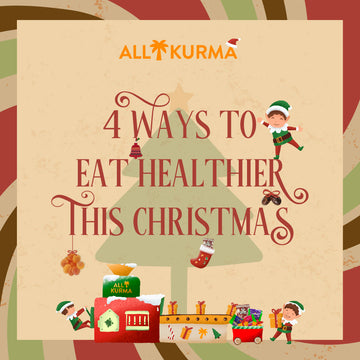
When the day drags on, and you are practically falling asleep at your desk, it can feel totally natural to grab something that will sustain your mood and energy. For many people, a quick snack is the perfect solution to stopping their hunger pangs until their next meal.
However, it cannot be denied that there are mixed opinions about the benefits of snacking. Some people believe that there is nothing wrong with it, while others feel that eating more than the standard three meals a day can lead to unhealthy eating habits.
And even among those who agree with the idea of snacking, there is no consensus upon how much they are allowed to eat when snacking, or even what types of snacks are permitted.
However, there is no reason for snacking to turn into something harmful, as long as you educate yourself on the right foods to eat and follow a few simple guidelines.
Why snack?
One of the biggest concerns about snacking is that it can lead to overeating. However, there is evidence that by preventing yourself from feeling hungry throughout the day, you actually have better control over your food intake during regular meals.
Snacking also does more than prevent hunger pangs. People often consume foods that provide additional nutrients to supplement regular meals, such as fibre, protein and vitamins and minerals.
Snacking also helps keep your digestive system working regularly, and helps raise your body's metabolism and control blood sugar levels. Studies have also proven that eating at least six light meals a day can help lower blood cholesterol levels.

What is snacking healthy?
The key thing when it comes to snacking is choosing the right kinds of foods to consume. Vegetables and fruits are low in calories, and packed with fibre and natural sugars. Dates , dried fruits and nuts in particular are the easiest to carry anywhere, and can be eaten at any time. Just a few pieces are enough to satisfy your cravings.
When you are opting for dried fruits and nuts alike, be sure to choose quality products. It is important to remember to avoid processed and high-sugar foods when choosing snacks. Try to eat snacks that are no more than 200 calories per serving, and which contain at least 10 grams of protein to help keep you full. (Get your healthy dried fruits and nuts here)
You should also look to adding heart-healthy fats to your snack diet. Good sources of heart healthy fats include avocado, edamame and plain seeds and nuts. Don't forget that a wide variety of foods can be used to combine fibre, protein and healthy fat to make a balanced snack.
Snacking for your mental health
Believe it or not, snacking can help improve our brain power and strengthen our mental and emotional wellbeing. For example, protein-rich food like fish, meat, eggs, cheese, and tofu contains an amino acid that increases the production of neurotransmitters, helping us to concentrate better during the day and stay alert.
Many of us naturally reach for carbohydrates when we're feeling down because they help lift our mood by increasing serotonin levels. Try getting a dose of healthy carbs from fruit sugars, honey, low-fat dairy products, whole grains, and many vegetable.

Omega-3 fatty acids are another good nutrient to include in snacks, for your heart as well as your brain. Tuna, walnuts, and some other foods contain omega-3s, which help fight high blood pressure and heart disease, as well as depression and anxiety. The effects of omega-3s are also being studied as they relate to a number of other health conditions, including joint diseases, schizophrenia, and attention deficit hyperactivity disorder.
Conclusion
There are numerous benefits to snacking, and if you do decide to snack in between meals, make sure that you choose healthy and nutritious foods that will keep you full and satisfied.
For more ideas on what healthy foods to include as part of your next afternoon snack, click here.
Sources:
https://foodandnutrition.org/july-august-2015/science-says-snacking/
https://www.postbulletin.com/lifestyle/food/6670744-Balanced-snacks-for-busy-kids-and-parents
https://www.littlethings.com/health-benefits-of-snacking/5
https://www.healthline.com/nutrition/snacking-good-or-bad#healthy-snacks
https://www.everydayhealth.com/diet-nutrition/meal-planning/healthy-snacking-benefits.aspx
https://foodandnutrition.org/july-august-2015/science-says-snacking/






